Economic independence central in preventing gender-based violence in Myanmar
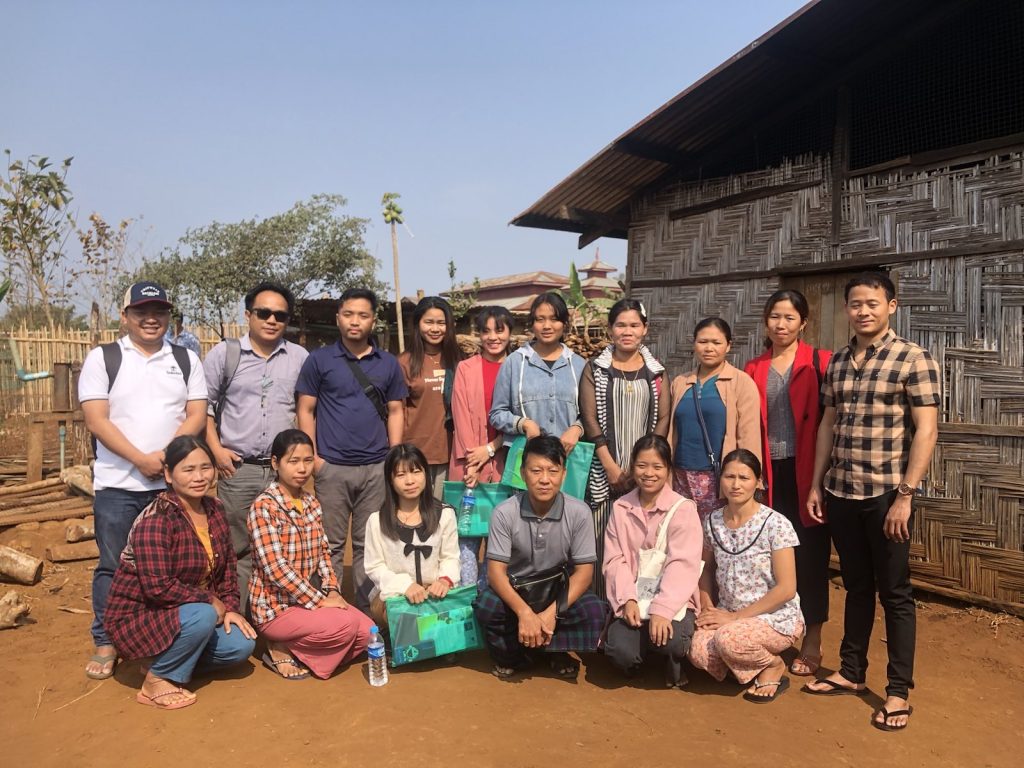
In the crisis-affected regions of Kachin State, women and girls experiencing or at risk of gender-based violence were helped by a multi-track project, funded by UN Women, that provided both support services and skills training.
IN MYANMAR, years of conflict, instability and economic insecurity have exacerbated the risk to vulnerable groups. Women and girls are particularly at risk from violence either within the home or during forced movements to safety.
Together with the Pyoe Development Organization, FCA worked with gender-based violence (GBV) prevention groups and UNFPA to identify and refer those at risk. Women and girls received counselling and awareness sessions on GBV in a supportive group setting within the community.
Funded by UN Women, the project also focused on enhancing livelihood opportunities. When women are economic independent, vulnerability to GBV is often mitigated. Women could take technical training sessions, including livestock-raising and organic farming.
Comprehensive Support for Women and Girls
The project spanned three townships and nine villages, including three resettlement areas. Perhaps the most impactful outcome was the initiative facilitated the formation of community-based GBV groups, empowering local volunteers to provide vital support and referral services to survivors. Additionally, GBV awareness trainings reached over 456 women, supported by the distribution of 800 information materials, including pocket guides and referral pathways.
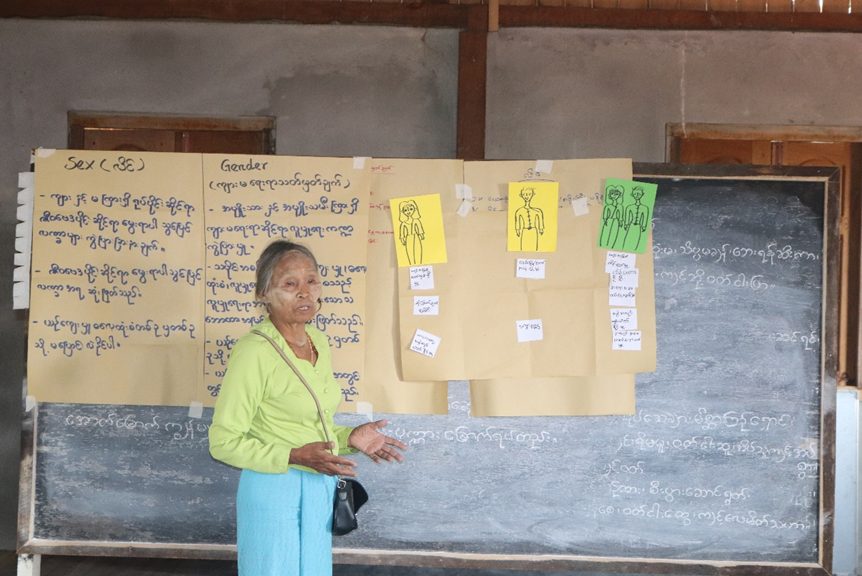
A total of 90 women benefited from training sessions, and small top-up grants were provided to nine women’s groups, enabling them to engage in income-generating activities. This not only fostered economic independence but also contributed to household and community resilience during these insecure times.
Daw Dau Tsai trained in animal care
Among the success stories is that of Daw Dau Tsai, a 43-year-old mother of six, who became a respected animal care worker after attending training sessions provided by FCA. The comprehensive training covered essential aspects such as poultry production, housing and raising methods, vaccination and disease treatment, nutrition and other general practices.
With these newfound skills, Daw Dau Tsai quickly became a trusted animal helper, achieving remarkable success with her castrations and hernial operations on fifteen pigs. Reflecting on her journey, she said, “At first, I had to build trust with my neighbors for home call services. I practiced on my own pigs to prove my skills and now gain their trust.”
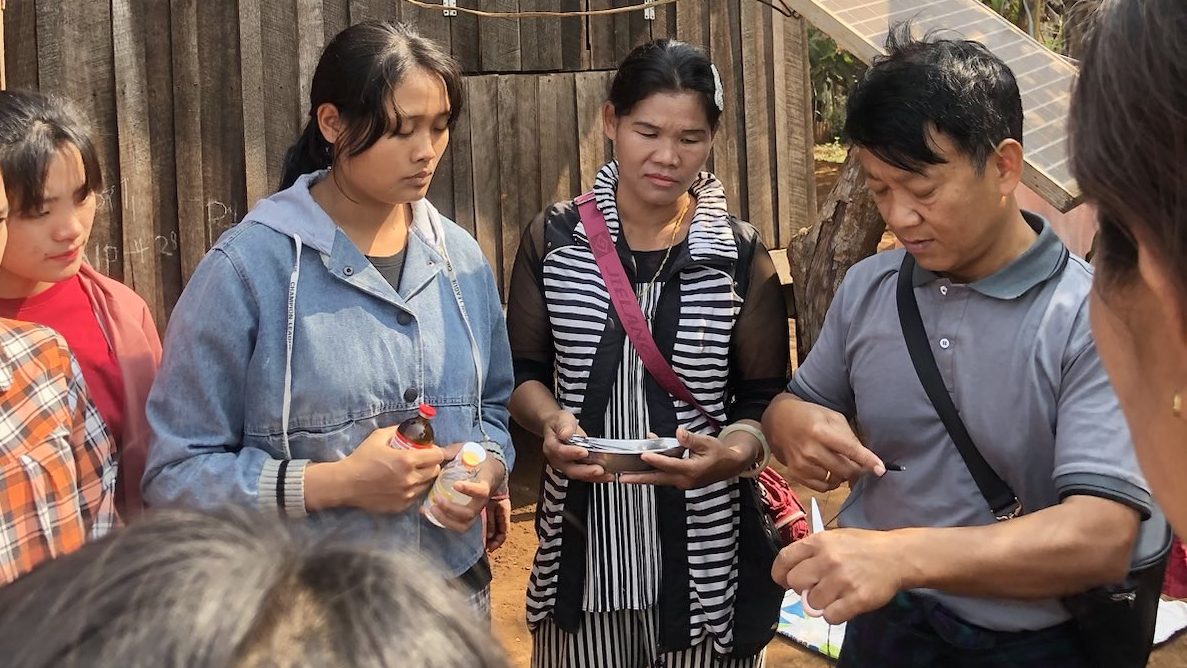
Earning 180,000 MMK (around 75 EUR) per month from her services, Daw Dau Tsai has turned animal care into a thriving profession while also raising pigs to support her family. “Before the training, I had to seek casual work in nearby villages, but now I can stay home, treat animals, and raise pigs to cover our family expenses,” she shared.
With a desire to learn more about veterinary medicine, Daw Dau Tsai dreams of expanding her services to nearby villages, further increasing her income and impact. Her newfound skills have allowed her to earn a stable income while contributing to her community.
Women’s group turned a profit
The project also conducted assessments of existing women’s groups to identify areas for capacity building and provided support to strengthen these groups. Daw Nyo Nyo Thi, Daw Seng Ra, and Daw Khin Thi formed the Ngwe La Yaung Womens Group and successfully started a business venture, thanks to financial support from FCA. They were all experienced in business, but had struggled individually as entrepreneurs, due to difficulty finding funding.
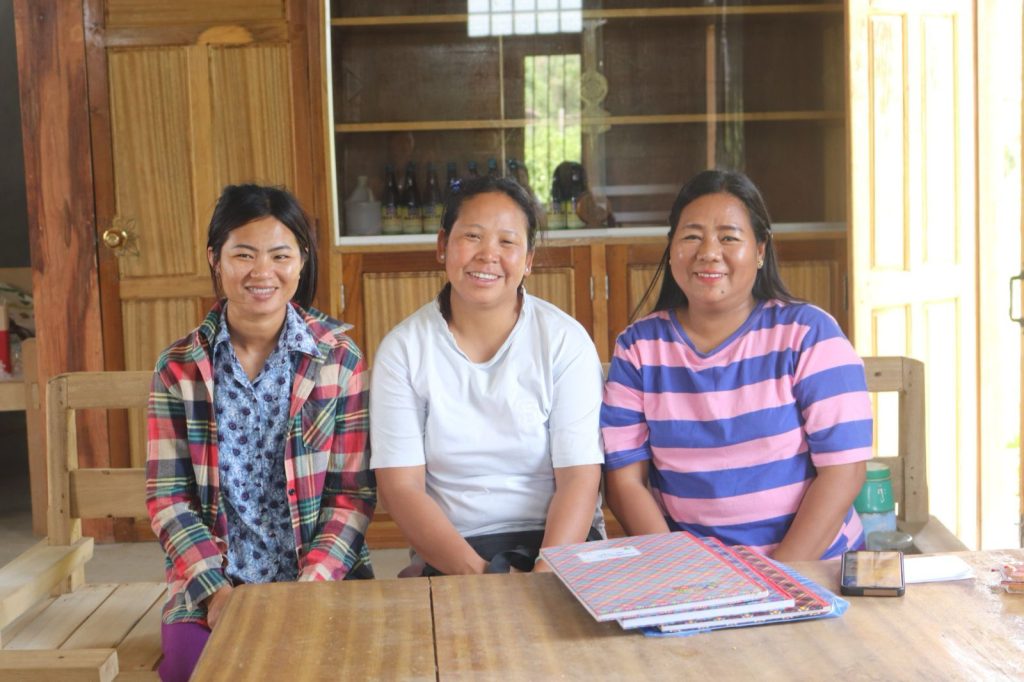
In January 2024, the trio submitted a proposal to the Pyoe Development Organization. Their initiative was selected, and they received 1,500,000 MMK (around 650 EUR) as a start-up fund, with an additional 1,750,000 MMK (around 770 EUR) from the project in March 2024. With the funds, they purchased onions and garlic from wholesale shops, selling door-to-door and to local shops. Their diligent efforts paid off, and they made a total profit of 2,380,000 MMK (around 1015 EUR), with each member earning 260,000 MMK (around 110 EUR) from the net profit.
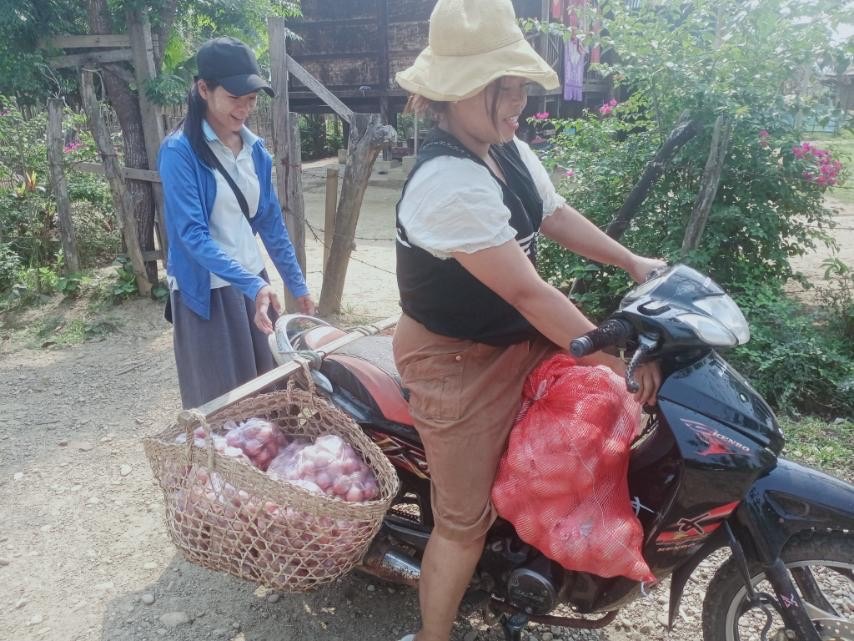
Their success has inspired other women in the village to pursue similar ventures, and family members have been supportive. One member proudly shared, “Now we can contribute to a children’s nutrition event as a group donation in the village. We also plan to support vulnerable people, such as those who cannot afford family funerals or childbirth expenses in the village.”
The group emphasised, “This kind of support means a lot to us and can significantly improve our daily lives. Working together as a team, we can overcome individual challenges and build a more sustainable business that allows us to save and invest for the future.”
The project faced significant challenges, such as limited water availability and budget increase due to inflation impacting costs. However, through community engagement, costs were able to be reduced in some areas. By empowering these communities, the initiative is contributing to a more resilient and stable future for the crisis-affected areas of Kachin State.
Text and photos: FCA Myanmar